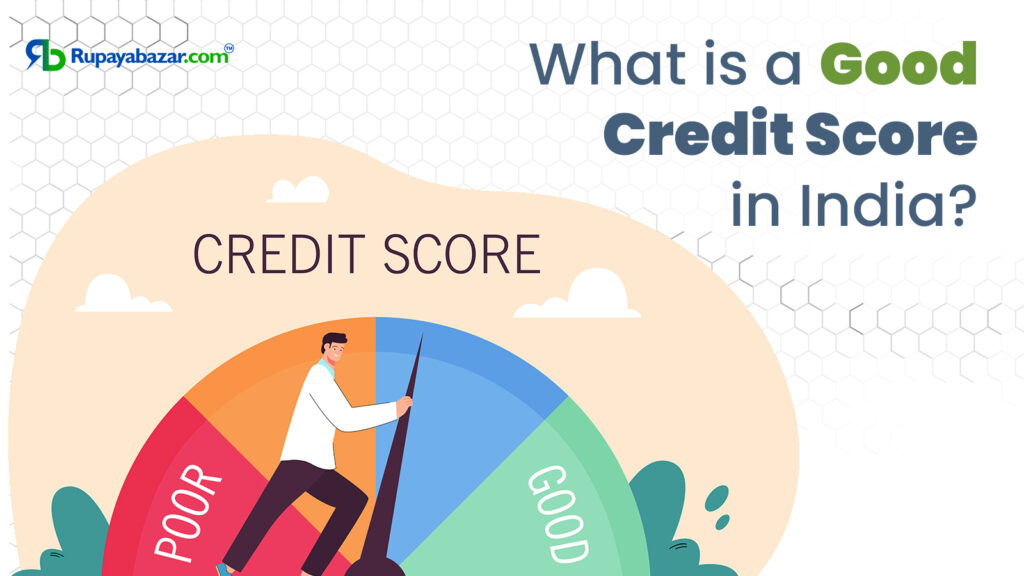What is a Good Credit Score in India? Your Key to Financial Freedom!
- Home
- »
- Uncategorized
- »
- What is a Good Credit Score in India ?
What is a Good Credit Score in India? Your Key to Financial Freedom!

What is a Good Credit Score in India? Your Key to Financial Freedom!
In today’s financial landscape, your credit score is more than just a number; it’s a reflection of your financial health and a crucial gateway to accessing loans, credit cards, and other financial products. But what exactly constitutes a “good” credit score in India? Let’s dive in!
Understanding Credit Scores in India
In India, several credit bureaus like TransUnion CIBIL, Experian, Equifax, and High Mark generate credit scores. While each bureau has its own scoring model, the scores generally range from 300 to 900. The higher your score, the more creditworthy you are considered by lenders.
What's Considered a "Good" Score?
While there’s no single magic number, here’s a general breakdown of what’s considered a good credit score across major credit bureaus in India:
- TransUnion CIBIL: A CIBIL score of 750 and above is generally considered excellent and highly favorable for loan approvals at competitive interest rates. A score between 701-749 is considered “good.”
- Experian: Similar to CIBIL, a score of 750 and above is excellent, while 700-749 is considered good.
- Equifax: An Equifax score of 750 and above is also highly recommended for better loan and credit card approvals. Scores between 670-739 are considered “good.”
- High Mark: A score of 720 and above is generally considered good.
In essence, aiming for a credit score of 700 or higher across all bureaus is a solid goal for most individuals in India. For significant loans like a home loan, a score of 750 or more is highly recommended to secure the best terms and interest rates.
Why Does a Good Credit Score Matter?
A good credit score offers a multitude of benefits:
- Easier Loan Approvals: Lenders are more confident in lending to individuals with a strong credit history, leading to quicker approvals.
- Lower Interest Rates: A high credit score indicates lower risk, allowing you to qualify for more favorable interest rates, saving you a significant amount over the loan tenure.
- Higher Loan Amounts: Lenders are more likely to sanction higher loan amounts to reliable borrowers.
- Better Credit Card Offers: You can get access to premium credit cards with higher credit limits, better reward programs, and other exclusive benefits.
- Negotiating Power: A strong credit score gives you leverage to negotiate terms with lenders.
Faster Processing: Applications with good credit scores are often processed faster.
Factors Affecting Your Credit Score
Your credit score is dynamic and influenced by several factors:
- Payment History (Most Important): Timely payment of EMIs, credit card bills, and other dues is paramount. Even a single missed payment can significantly impact your score.
- Credit Utilization Ratio: This is the amount of credit you are using compared to your total available credit limit. Keeping it below 30% is ideal. High utilization indicates credit hunger and can negatively impact your score.
- Length of Credit History: A longer credit history with responsible usage generally leads to a better score.
- Credit Mix: Having a healthy mix of secured loans (like home loans, car loans) and unsecured loans (like personal loans, credit cards) demonstrates your ability to manage different types of credit responsibly.
- New Credit Applications: Frequent applications for new credit within a short period can lower your score, as it might suggest financial distress.
Number of Hard Inquiries: Each time a lender pulls your credit report for a loan application, it’s a “hard inquiry” and can slightly ding your score.
FAQs
The lowest credit score typically ranges from 300 across all major credit bureaus (CIBIL, Experian, Equifax, High Mark). A score below 300 often indicates no credit history or a severely damaged one.
While a CIBIL score of 650 might get you an approval from some lenders, it’s generally considered “fair” and you might face stricter conditions or higher interest rates. For the best terms on a home loan, aiming for 750+ is highly recommended
It’s advisable to check your credit score and report at least once a year. Some platforms offer free monthly checks, which can help you monitor your score regularly and catch any discrepancies
While rapid improvements are challenging, consistent good financial habits can gradually boost your score. Key steps include paying bills on time, reducing credit card debt, and avoiding too many new credit applications.
No, checking your own credit score (a “soft inquiry”) does not negatively impact your score. Only “hard inquiries” by lenders when you apply for credit affect your score
If you have no credit history, your score might be ‘NA’ or ‘NH’ (Not Applicable/No History). To build credit, you can start with a secured credit card, a small personal loan, or a consumer durable loan and ensure timely repayments.
No, while CIBIL is the most widely known, India has other major credit bureaus like Experian, Equifax, and High Mark, all authorized by the RBI.
Ready to understand your credit health and secure the loans you need? A good credit score is your foundation for financial success.
Contact Rupayabazar.com today! Call 9358881620, 9358881630, or 9460606944 for all your loan requirements. Let us help you navigate the world of credit and achieve your financial goals.
